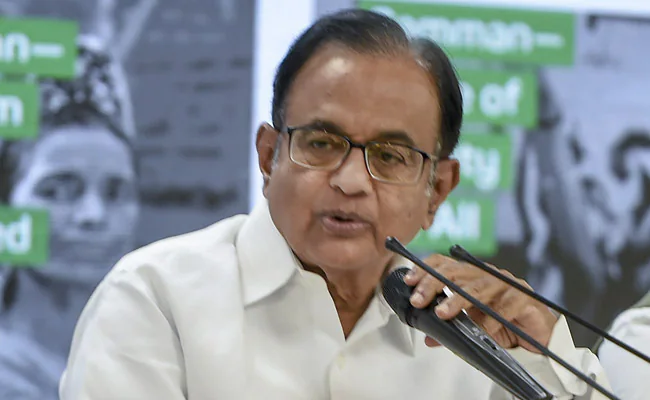The way Vice President Jagdeep Dhankhar is talking about the absolute power of the Parliament to amend the Constitution, the opposition camp sees danger for the Constitution. Congress leader P. Chidambaram’s question, if a government using absolute majority in the parliament amends the constitution and changes the parliamentary system to introduce a presidential system, can it be called legitimate? If the central government takes away the power of the state by passing the constitution amendment bill in the parliament, can it be called constitutional?
Vice President and Rajya Sabha Chairman Dhankhar on Wednesday criticized the Supreme Court for striking down the Modi government’s National Judicial Appointments Commission Act. His argument was that the Supreme Court rejected the law as against the ‘basic structure’ of the Constitution. In 1973, the Supreme Court first spoke about the ‘basic structure’ of the Constitution in the Kesavananda Bharati case, and he termed the verdict in that case as a ‘bad precedent’. Dhankhar’s argument was that Parliament is supreme. Parliament should have the power to amend the constitution at will.

That is the lifeline of democracy. According to Chidambaram, “Every constitution-loving citizen hearing this opinion should be wary of future dangers.”
Stance of the opposition camp
The opposition camp as well as the constitutional experts think that Dhankhar is actually asking for the amendment of the constitution. What he is saying is that if a party has an absolute majority in Parliament and is in power in most states, they can change the very fabric of the Constitution. According to Chidambaram, “Rajya Sabha chairman is wrong to say that Parliament is supreme. In fact, the Constitution is supreme.” The same argument was made by the Centre’s former Additional Solicitor General Biswajit Bhattacharya.
His statement, “I was one of the litigants against the Judicial Appointments Commission Act. The Supreme Court struck down the law. Because Parliament cannot make laws against the Constitution. There is no such thing as sovereignty of Parliament. It is stated in Article 245 of the Constitution. Even a first year law student knows that. It is not appropriate to speak against the constitution sitting in a constitutional position. Unfortunate.”
Legal experts say that the Supreme Court ruled in the Golaknath case in the debate about who is supreme, the Parliament or the Supreme Court, that the fundamental rights given by the Constitution cannot be interfered with. The Indira Gandhi government stood against it. After that, a 13-judge bench of the Supreme Court ruled in the Kesavananda Bharati case that the basic structure of the Constitution should not be tampered with.
Conclusion
Chidambaram’s statement is an incarnation of the theory of the basic structure of the Constitution so that no one can harm the basis of the Constitution by force of majority. After the Supreme Court struck down the Judicial Appointments Commission Act, the Modi government could have introduced a new law if it wanted. The theory of the basic structure of the Constitution has not been invalidated because that Act has been dismissed.
